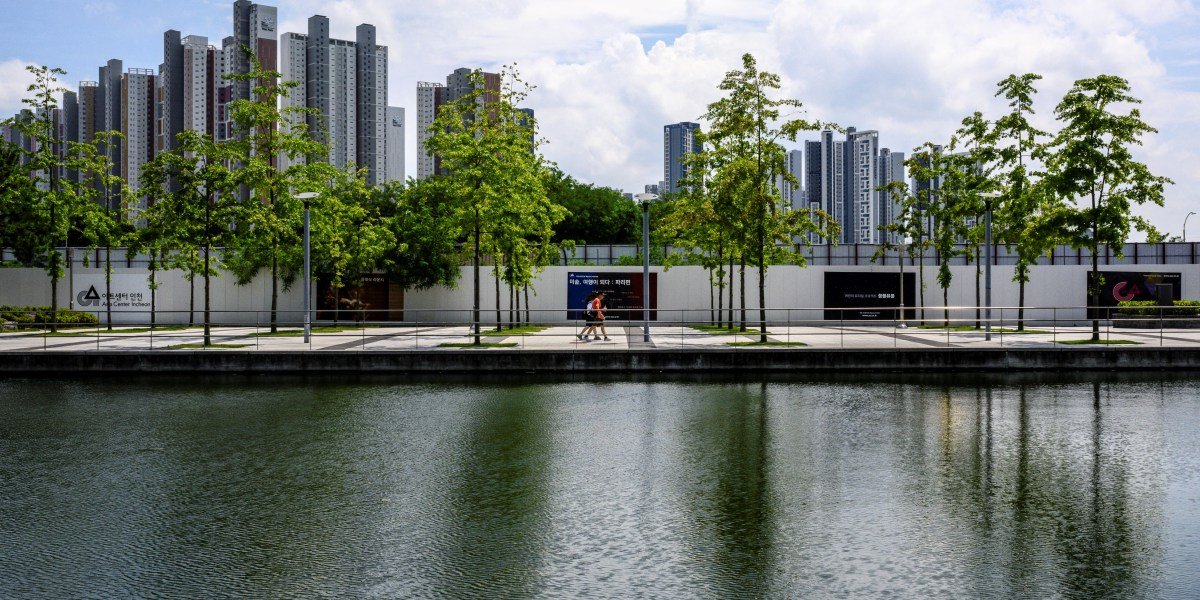Management teams in office buildings and apartment complexes across South Korea are mulling measures to address the risk of fire after an electric vehicle explosion led to the evacuation of more than 200 families.
An unplugged electric Mercedes-Benz sedan caught fire last Thursday in an underground carpark at an apartment complex in Incheon, west of Seoul, according to fire authorities. More than 700 residents were evacuated due to water and power outages and the blaze damaged some 140 cars, according to the Incheon Metropolitan City government. Twenty three people were hospitalized.
Several office buildings have now banned EVs from entering and parking, according to notices on social media, while some apartment management committees are advising EV owners to be cautious when they charge their cars.
Watch the explosion here:
청라 아파트 전기차 화재 사고
벤츠 전기차라고 합니다
불 순식간에 붙네요 무섭 ㄷㄷㄷ pic.twitter.com/BA3l5GJbJY
— Healthy Investing (@btc_tsla_keepgo) August 1, 2024
The incident has rattled South Korea’s public at a time when EV sales growth — globally — is slowing. While combustion engine car fires are much more common, negative sentiment toward EVs and the fire risk their batteries may pose adds to some of the other reasons consumers shy away from buying an electric car, including higher upfront costs and lack of reliable charging infrastructure.
“Honestly it’s quite frightening and this will surely be discussed during our regular resident meeting this month,” Wayne Moon, a 37-year-old inhabitant of Gyeonggi, the province surrounding the capital, said by phone. “There’s a need for the country to overhaul everything from fire safety standards, legislation and charging infrastructure to address the risk of EV fires.”
Mercedes-Benz Korea will fully cooperate with authorities to investigate the cause of the fire but declined to comment further, according to a statement.
According to local media reports, the battery in the car was made by China’s Farasis Energy. It became a partner to Mercedes-Benz in 2018, providing cells to the German carmaker as part of an eight-year contract and Mercedes-Benz became a strategic investor in the company in 2020, some of the reports said. Farasis didn’t respond to requests for comment.
With social media now abuzz in Korea over the safety of EV batteries, some people are reconsidering their upcoming car purchases.
Users of a Tesla Inc. online community chat were debating on Tuesday whether they should cancel their orders, and one EV owner complained that a shipping company had refused to take his car to Jeju Island. Another EV owner said his office building had suspended the use of EV chargers.
According to a 2023 report from Korea’s National Fire Agency, the number of cars catching fire has increased every year for both internal combustion engine vehicles and EVs since at least 2017. It’s typically more difficult to put out an EV blaze however as lithium-ion battery fires burn hotter and last longer than gasoline ones.
Most South Koreans live in high-density apartments, meaning a large portion of charging stations are housed in buildings’ underground garages. Newly constructed apartments and buildings of certain size are legally required to install EV chargers.
Following last week’s incident, Song Eonseog, a lawmaker from the ruling party, has proposed revisions to the country’s Parking Lot Act to ensure better safety and limit EV battery fires.
CEO Daily provides key context for the news leaders need to know from across the world of business. Every weekday morning, more than 125,000 readers trust CEO Daily for insights about–and from inside–the C-suite. Subscribe Now.




